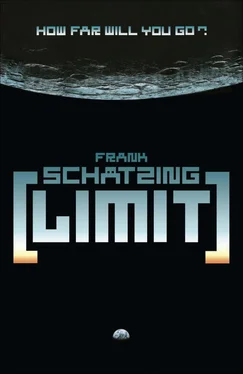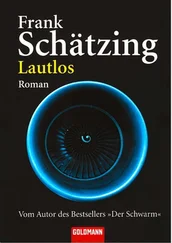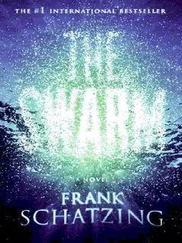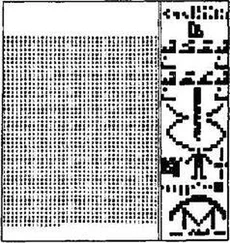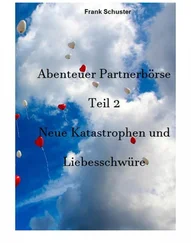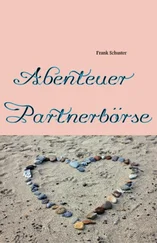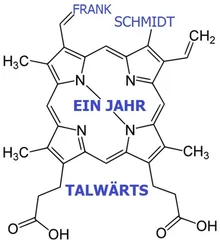‘Listen,’ he said. ‘We’re going to do something now that we should have done a lot sooner.’
He pulled the icon of the intertwined snake bodies onto the screen and named it UNKNOWN.
‘Diane.’
‘Yes, Owen?’
‘Look in the net for equivalents of UNKNOWN. What is it about? Show me the corresponding data and deliver contextual background.’
‘One moment, Owen.’
Yoyo came and sat next to him, crossed her arms on the table and laid her chin in the crook of an elbow. ‘Her voice is very lovely, I grant you,’ she said. ‘If she looked as—’
The screen filled with images.
‘Would you like to hear a summary, Owen?’
‘Yes, please, Diane.’
‘It’s very likely that the graphics show a Hydra. A nine-headed, snake-like monster from Greek mythology, which lived in the swamps of the Argolid and prowled through the surrounding lands, killing cattle and humans and destroying harvests. Even though the Hydra’s middle head was immortal, she was defeated by Heracles, a son of Zeus. Would you like to hear more about Heracles?’
‘Tell me how Heracles defeated the Hydra.’
‘The snake’s distinguishing characteristic was that it grew two new heads for every one that was chopped off, with the result that it became increasingly dangerous as the fight went on. It was only when Heracles began to burn off the neck stumps with the help of his nephew Ioalaus that the new heads were no longer able to grow. Eventually, Heracles succeeded in striking off Hydra’s immortal head too. He dismembered the body and immersed a stake in its blood, which from then on could create incurable wounds. Would you like to hear more details?’
‘Not right now, Diane, thank you.’
‘A Greek monster,’ said Yoyo, her eyes wide. ‘In the picture it looks more Asian.’
‘An organisation with lots of heads.’
‘That grow back when you knock them off.’
‘But would Chinese conspirators really make a creature from Greek mythology into their symbol?’
Yoyo stared at the monitor. Diane had found around two dozen images of the Hydra, various depictions, in artefacts spread across two millennia, all of which showed a scaly snake body with nine tongued heads.
‘No, not a chance in hell,’ she said.
Peary Base, North Pole, The Moon
They felt a little like the survivors from a wagon-train of white settlers, the ones who had made it to the fort in the nick of time, even though there were no equivalents of Indians to be seen anywhere. But at the moment when the Callisto descended over the base’s space station, O’Keefe couldn’t help but picture US cavalry stationed at the Pole, a troop of riders who came tearing over the plateau to protect them, hats and flashing epaulettes, fanfares, shots fired in the air, the familiar tropes: Are you safe, Sergeant? – Aye, sir! A hell of a journey. I didn’t think we’d make it. I see the Donoghues aren’t here. Dead, sir. Blast! And the staff? – Dead, sir, all dead. My God! And Winter? – Didn’t make it, sir. We lost Hsu too. Terrible! – Yes, sir, horrible.
How strange. Even something as exotic as space travel only seemed to function through the cultivation of earthly myths, by imposing elements of the familiar onto the unfamiliar. Something designed to expand the mind ended up being subjected to musty familiarity and forced into narrow spectrums of association. Perhaps people couldn’t help it. Perhaps making the unusual seem banal prevented them from perishing of their own banality, even if it meant their subconscious calling on the services of the western, a genre whose task had been to put a chaotic world back to order with the assistance of sharp ammunition and sublime landscapes. A lot of bad things have happened, Sergeant. Aye, sir. So many have died. Aye. But look at the land, Sergeant! Is it not worth every man lost? – I wouldn’t miss it, sir! – What a wonderful country! Our hearts beat for it, our blood flows for it. We may die, but the land remains. I love this country. By God, me too! Let’s ride!
My arse!
As soon as Nina landed the Callisto at the Pole, all eyes were directed towards the Charon. To the southern end of the landing field, surrounded by the base’s spaceships, the landing module rested like a small, impregnable castle on stilt legs. O’Keefe recalled their first leaps and steps, filled with that conquistador-like feeling of having conquered something, unsuspecting that they would come back just a few days later, depleted and demoralised. The monochrome landscape and mother-of-pearl sea of stars had lost none of their beauty, even after the disaster in Gaia, but their gazes had now turned inwards. The adventure was over. The desire to escape had extinguished the pioneering spirit.
‘Well, I don’t know.’ Leland Palmer, a small, Irish-looking man and commander of the base, looked around at them sceptically. ‘None of it seems to make sense to me.’
‘Well, then a lot of people had to die for something that makes no sense,’ said O’Keefe.
A robot bus had brought them from the landing field to Igloo 2, one of the two domed living quarters which formed the centre of the base. Igloo 1 contained the headquarters and scientific working area, while its neighbouring counterpart was for leisure activities and medical care. In a lounge which oscillated between comfort and functionality, they had told the residents their story, while Karla, Eva and the Nairs were examined for signs of smoke poisoning and Olympiada Rogacheva, in a state of self-reproach, had her leg put in splints. Lynn had sat amongst them silently for a while, until Tim, his face contorted with worry, had taken her hand and told her she should lie down, sleep and forget, a suggestion that she had followed apathetically.
‘I mean there’s no sense to the expense ,’ said Palmer. ‘I mean, just look at what a simple oxygen fire can do! What would someone need a nuclear bomb for?’
‘Unless you factor in the location,’ Dana suggested.
‘You mean you think the bomb isn’t for the Gaia at all?’
‘Not exclusively, I would say.’
‘That’s true,’ said Ögi. ‘A few hand grenades, correctly positioned, would have done the job, no problem. I happen to know a thing or two about mini-nukes—’
‘You do?’ said Heidrun, amazed.
‘From the television, my dear. And one thing I know is that you shouldn’t let yourself be fooled by the cute terminology, you know, Mini Rock, Mini Mouse, Mini Nuke. Every one of the mini-nukes which disappeared from the holdings of the former Soviet Union in the early nineties was capable of obliterating Manhattan.’
‘So what are they trying to destroy, then?’ asked Wachowski.
‘Gaia is at the edge of a basin,’ said Tim, his head resting in his hands. ‘Where the Vallis Alpina rounds out.’
‘What would happen if someone set off a nuclear bomb in a basin like that?’ asked O’Keefe.
‘Well.’ Wachowski shrugged. ‘It would contaminate it.’
‘More than that,’ said Palmer. ‘There’s no air here to spread radioactive material, no atmospheric fallout. But on the other hand nor is there anything to slow down the explosion’s energy. The direct destruction itself would be enormous, a bit like the impact of a meteorite. The pressure would blast away the edges of the basin, the heat would turn its walls to glass, vast quantities of rock would be catapulted into the air, but above all, the detonation would be tunnelled.’
‘Which means?’ asked Heidrun.
‘That there’s only one direction, apart from upwards, that the pressure can be released.’
‘Into the valley.’
‘Yes. The waves of pressure would graze along the entire Vallis Alpina, accelerated by the steep walls. I’d estimate that the whole area would be lost.’
Читать дальше
